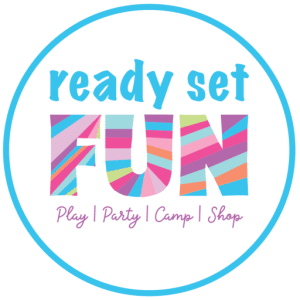Discover the Best Children’s Camps and Activities in Atlanta for 2024
The lively city of Atlanta offers a wide range of fun and engaging children’s camps and activities catering to various interests and age groups. From sports and arts to STEM and outdoor exploration, there’s something for every child to enjoy in this bustling metropolis. As parents, we want the best for our children, and finding the perfect camp or activity can have a significant impact on their physical, emotional, and social development. So, let’s dive into some of the best children’s camps and activities available in Atlanta for 2024!
1. Atlanta Botanical Garden’s Camp: Connect with Nature
The Atlanta Botanical Garden provides an opportunity for children to connect with nature through their engaging and educational camp programs. Both the summer and winter camps emphasize exploration, discovery, and hands-on activities that focus on the wonders of the garden and its plants, animals, and ecosystems. Young gardeners can participate in nature walks, gardening workshops, and even create art inspired by their surroundings.
In addition to their camp programs, the Atlanta Botanical Garden offers weekend activities tailored for families, ranging from storytimes, themed tours, and special events, making it an ideal spot for nurturing a child’s love for the outdoors.
2. High Touch High Tech: Fuel the Scientific Curiosity
High Touch High Tech aims to fuel scientific curiosity in children through its engaging STEM-focused programs. These comprehensive, hands-on experiences teach the fundamentals of topics like earth science, physics, and biology, while allowing kids to experiment with scientific concepts.
These camps also promote critical thinking and problem-solving skills, in a fun and welcoming environment. As parents, we understand the importance of nurturing a well-rounded education, so incorporating a STEM-focused camp into our children’s summer activities can provide invaluable knowledge to support their academic growth.
3. Zoo Atlanta’s Safari Camp: An Adventure with the Animal Kingdom
For animal-loving children, the Safari Camp at Zoo Atlanta offers an unmatched experience. With expert educators guiding the camp programs, kids can learn about animal behavior, explore different habitats, and participate in hands-on experiences that teach them about nature conservation.
In addition to the summer camp, Zoo Atlanta offers Family Night Crawls, providing families with an unforgettable nighttime adventure. These guided, flashlight-lit tours allow participants the chance to explore the zoo after dark, observe nocturnal animals, and learn about the unique adaptations and behaviors of these creatures.
4. Imagine That! and Future Tech: Creative Exploration of Technology
Imagine That! and Future Tech camps provide children with the unique opportunity to explore various aspects of technology, coding, and robotics in a captivating, hands-on environment. Campers can immerse themselves in the world of virtual reality, use 3D printing technology, develop their coding skills, and more.
Alongside their innovative summer camps, Imagine That! and Future Tech deliver educational workshops, after-school programs, and birthday parties that allow kids to continue pursuing their passion for technology throughout the year.
5. Sports Camps: Inspire Athletic Confidence and Skill Development
Atlanta’s wide range of sports camps cater to every young athlete’s interests, from soccer and basketball to gymnastics and tennis. These camps not only offer an outlet for physical activity, but they also promote other essential life skills like teamwork, leadership, and perseverance.
Most sports camps are led by experienced coaches and trainers who ensure that children are learning in a safe and supportive environment. With options for beginner, intermediate, and advanced athletes, there’s a camp for every skill level.
6. One-Day and Weekend Activities: Endless Learning Opportunities
The city of Atlanta offers an abundance of one-day and weekend activities perfect for families with young children. These options extend beyond traditional camps and provide endless learning opportunities combined with fun and entertainment. Some popular attractions include:
Georgia Aquarium: Kids of all ages will be mesmerized by the wonders of the deep blue sea while learning about different marine life and conservation efforts.
Fernbank Museum of Natural History: Stimulate young minds with interactive exhibits, a nature walk, and engaging displays that explore the history of our planet and its inhabitants.
Center for Puppetry Arts: This unique cultural institution showcases the magical world of puppetry through performances, workshops, and exhibits, igniting the creative spirit in children and adults alike.
SkyZone Trampoline Park: This popular trampoline park provides hours of active fun for kids, with attractions such as open jump arenas, obstacle courses, and dodgeball games.
Shape Your Child’s 2024 with Engaging Experiences in Atlanta
As parents, investing our time in seeking the best camps and activities for our children can significantly impact their development and overall well-being. Ensure they make the most of their 2024 by planning a variety of experiences that cater to their interests and provide opportunities for growth, learning, and fun.
And remember, when it’s time to celebrate your child’s special day, come visit us at Ready Set FUN for a premier camping experience and more!

